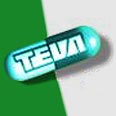
Company surrounded by uncertainty
'Half of market held short in Teva'
Dr. Ronny Gal, chief pharma analyst at Sanford-Bernstein, paints negative picture of pharmaceutical market but believes industry's development rate will increase rapidly. In special interview to Calcalist, he criticizes US SEC but offers positive forecast for Israeli generic giant
"I made a bet with someone in Israel
that Teva's share
won't drop below $40, but it did – that just shows you how much analysts know," laughs Dr. Ronny Gal, chief analyst at New York brokerage firm Sanford Bernstein, who is visiting his family in Israel.
Gal, an Israeli expatriate, left for the United States after finishing his military service to get his PhD in biochemistry from MIT.
Credibility crisis
The interview with Gal was held after his meeting with Teva's management. Despite the fact that Gal holds Teva's management in the highest esteem, he agrees that Teva's main problem is the credibility crisis.
"Teva made various statements that the market did not like," Gal explained. "It forecasted all kinds of things that never happened."
Gal pins the credibility crises on the business model change that Teva is currently implementing. Gal told Calcalist that the move enhances the uncertainty surrounding the company; however, he credits Teva's original management for some good moves over the years which expanded the company and catapulted its profits.
Won't this benefit Teva in upcoming years as well?
"It seems that in recent years, these moves have run their course. In the upcoming years, more patents will expire in the pharmaceutical industry but the big wave is behind us. Additionally, Teva's mergers and acquisitions mean that the company can no longer perform mergers and acquisitions in the generics field. Antitrust laws in the US and Europe prohibit it from doing so.
"Add the fact that Copaxone sales will begin to drop because for the past decade the world has been investing billions of dollars in the development of drugs for multiple sclerosis and the fact is that new generation of drugs outperforms Copaxone."
Gal forecasts that despite the drops in the share price, Teva will produce over $5 billion in cash after the acquisition of Cephalon and Taiyo.
Still, the share has dropped below $40.
"The market overcorrected. I did not recommend the share for a while but when the share hit $45 I said that the risk-to-reward ratio was 20-80. At the current price, the ratio is even more attractive."
What shares do you recommend?
"I recommend Teva's shares because I believe it can climb to $50-55 within six months. I also recommend Allergan, Mylane and Medicis."
Click here to read this report in Hebrew
- Follow Ynetnews on Facebook















